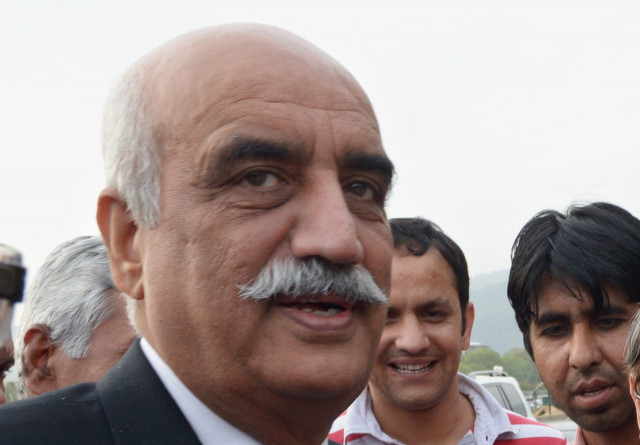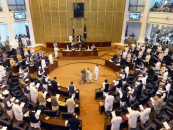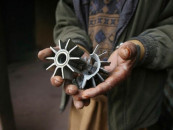Public Accounts Committee – a tale of unrealised potential
Ex-chairman discusses how successive govts and assemblies have neglected the panel’s reports

Appropriation accounts of government departments, apart from a few constitutional bodies and the armed forces, are audited by the AGP office. PHOTO: AFP
A non-ministerial committee, PAC examines public audits and if required, invites ministers or government officials for questioning on government funds. Almost all parties in the NA have representation in the 24-member panel. Recently, the Senate chairman has proposed including senators in the PAC, and widening its scope.
PTI readies another reference against Dar
With broad-ranging powers, PAC can potentially serve as an effective tool to hold all public sector organisations accountable. But due to repeated military interventions and subsequent dismissal of parliament, the parliamentary body in Pakistan has not developed as similar institutions have elsewhere in the democratic world.
The Express Tribune interviewed Pakistan Peoples Party’s Nadeem Afzal Chan, who chaired this prestigious panel in 2012-2013.
During his term as chairman, Chan says he took up many important issues of the time. Most prominent among them was his attempt to call for the first time then Supreme Court registrar and officials from some government departments and constitutional bodies which are allocated budget as ‘charged expenditure’ without the vote of assembly members.
Chan’s predecessor in 13th PAC, incumbent Interior Minister Chaudhry Nisar Ali Khan, earned accolades as panel chairman during 2008-2012 and recovered more than Rs100 billion embezzled in different government departments. He also had the record of presenting several pending annual reports from 1990 till 2010.
During Chan’s terms billions more were recovered. Leader of Opposition in the NA Khursheed Shah heads the current PAC. He has failed to earn the same respect in that role so far due to what many see as his ‘compromising’ approach. Save for a few cosmetic issues, the incumbent PAC has sniffed out any major misappropriation cases so far. One possible reason is that it is looking into reports of the Auditor General of Pakistan (AGP) for the years when Shah’s own party, the PPP, was in power.
Like many other important documents, PAC reports are laid before the NA solely for the sake of record and never pursued. “Unfortunately (successive NA) speakers never used their authority over the executive on any matter pointed out in the PAC reports,” Chan told The Express Tribune.
Public Accounts Committee: Decision on Senate representation likely in two weeks, says official
“No NA speaker can be singled out. Each of them has been docile in this respect, because they did not want to embarrass the government,” he said. “NA staff is equally responsible for this.” Chan added that speakers were also lenient towards opposition parties in cases where PAC reports dealt with years when those parties were in government.
Ideally, the government is required to report back to parliament on PAC recommendations within a specified period. The practice is followed in almost all developed democracies but has never been followed in Pakistan.
“We have the same rules [as PACs in other countries] but no speaker wants to embarrass his government. Same is the case with the NA bureaucracy which is more loyal to every government than the house or its rules,” Chan said.
According to him, PAC reports submitted over past years are just sitting in the NA library since and have never been checked by any one.
Many government officials refuse to appear before PAC on one pretext of the other. It happened in Chan’s term when Supreme Court, NADRA, SECP and many others declined to be examined. Recently, the Senate secretary declined to appear before PAC with the Senate chairman arguing that the upper house could not be held accountable by the lower house.
“When powerful institutions show they don’t want accountability, it encourages others to defy,” Chan said. “Since it is directly elected by the people, NA should be treated as the supreme institution in this respect.”
Appropriation accounts of government departments, apart from a few constitutional bodies and the armed forces, are audited by the AGP office. Short of resources and manpower, it conducts a random audit of only 10% of these institutions’ accounts. Enhancing AGP’s capacity and making PAC more effective can serve as a deterrent against the misuse of public money.
Published in The Express Tribune, July 25th, 2016.


















COMMENTS
Comments are moderated and generally will be posted if they are on-topic and not abusive.
For more information, please see our Comments FAQ